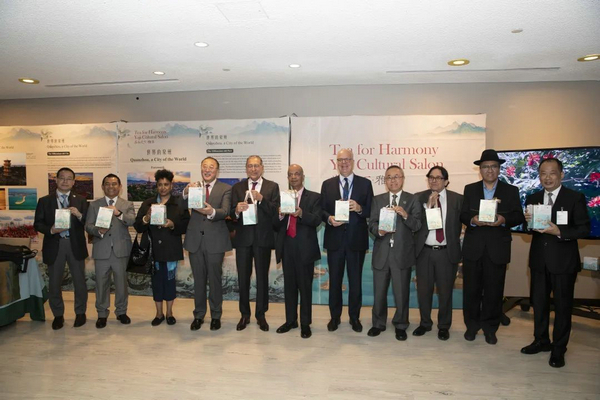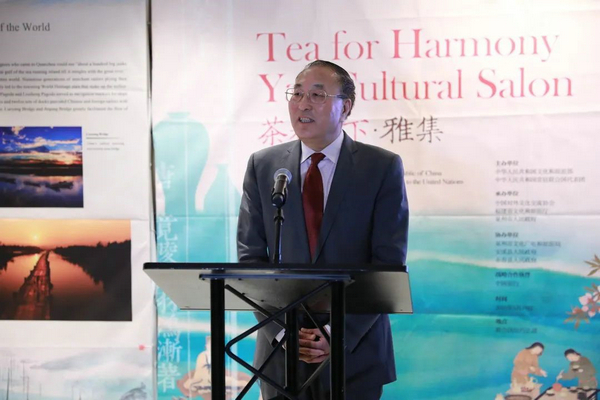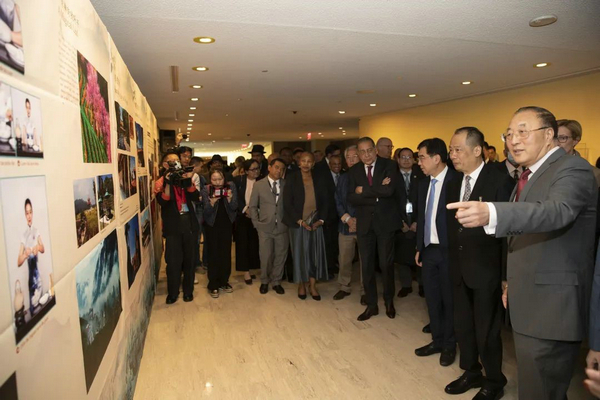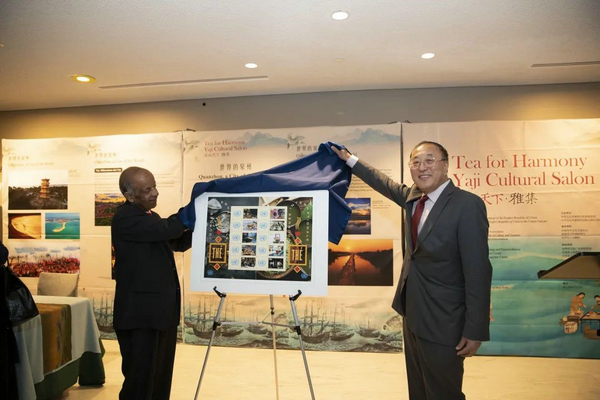

"Tea for Harmony: Yaji Cultural Salon", a global event to promote China's tea culture, was held by China's Ministry of Culture and Tourism and Permanent Mission to the UN at the UN headquarters in New York on May 19, 2023.

This was the first offline "International Tea Day" celebration held at the UN headquarters since the outbreak of the pandemic. More than 100 guests, including permanent representatives from some 20 countries to the UN, gathered for the event.
Zhang Jun, China's permanent representative to the UN, and Atul Khare, UN's under-secretary-general, unveil the UN "International Tea Day" themed stamps.

As part of the celebration, a seminar under the theme of "A Magic Leaf: Tea for Green Development" was co-organized by the Chinese Permanent Mission to the UN and the Food and Agriculture Organization of the UN (FAO) in the afternoon.
Zhang Jun, China's permanent representative to the UN, delivers a speech at the event, May 19, 2023.

Zhang Jun, China's permanent representative to the UN, said that China is the homeland of tea, and in China the time-honored tea culture is shining even more brightly in the process of Chinese modernization. China wishes to use tea as a medium to promote international exchange and cooperation and enhance mutual understanding, and to use tea as a means to make friends, deepen partnerships and achieve common development, he added.
Li Junhua, UN's under-secretary-general, said that tea runs through different cultures, economies and histories, and truly connects the world. The production, processing and trade of tea helps people eliminate poverty and hunger, improve women’s empowerment, and achieve sustainable use of ecosystems, which are closely related to the implementation of the 2030 Agenda.
Máximo Torero, FAO chief economist, said in his video speech that tea is not only a drink, but also carries culture, tradition and heritage. He also expressed that tea, as an important economic crop, contributes to economic growth, employment and income creation, and helps to achieve multiple sustainable development goals.

Representatives from Cambodia, Indonesia, Eritrea, Bangladesh, Kyrgyzstan and other countries' permanent representatives to the UN said that tea is a key driver for social and economic development. They said tea is an effective means to help less developed regions eradicate poverty, increase farmers' income and empower women.
Guests visit exhibitions on tea culture and Quanzhou cultural heritage during the celebration of the International Tea Day.
Guests hold tea gift bags distributed during the celebration of the International Tea Day.
At the "Tea for Harmony: Yaji Cultural Salon", tea art specialists and artists from Quanzhou presented a rich variety of performances and experiential activities for guests. Ambassadors from many countries forwarded photos and videos of the event on social media and gave high praise, looking forward to China continuing such events.